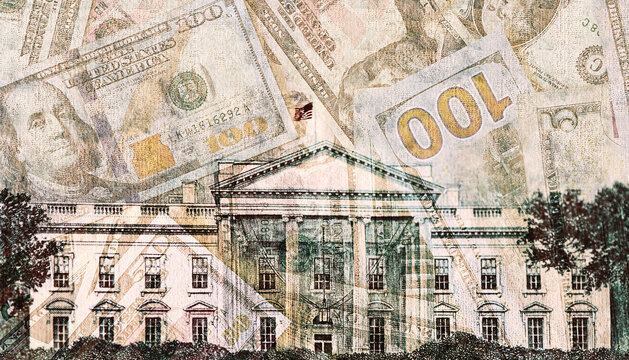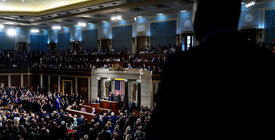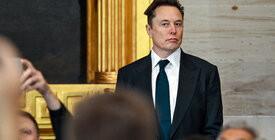The 2025 inauguration’s donors featured corporate giants, tech titans, energy companies, financial institutions, and wealthy individuals. (In some cases, corporate givers touch multiple industries. This analysis counted each donor only once.)
Only six of the hundreds of major corporate donors to Trump’s inauguration had also contributed to super PACs supporting his 2024 presidential bid. While the actual motivations behind any one inaugural donation are not clear, donors who did not give to the president’s campaign have a significant financial stake in his administration’s early policy priorities. The vast majority did not give to his campaign, suggesting that inaugural donations can serve as another, potentially alternative, way to gain influence with the administration.
Silicon Valley investors, Big Tech giants, and burgeoning tech fields such as artificial intelligence (AI), fintech, and cryptocurrency were among the inauguration’s top contributors. Overall, technology interests gave roughly $44.6 million.
Cryptocurrency companies made up at least $13.5 million of that total — enough for the industry to be one of the top five donor industries unto itself. Many other corporate contributors also have interests related to digital currency or blockchain. Trump ran for office on a promise to make the United States “the crypto capital of the world." He has since embraced cryptocurrency with a blitz of strategic appointments, executive actions easing crypto enforcement, and personal investments.
Some of the biggest crypto donors to the inauguration also have direct stakes in specific Trump administration decisions.
Among them is Ripple Labs, a cryptocurrency company whose nearly $4.9 million contribution made it the second-largest donor overall. After the Securities and Exchange Commission (SEC) imposed a $125 million fine on Ripple last year, it more recently agreed to settle with the company for $50 million. However, in May, a federal judge declined to sign off on the settlement, citing procedural errors in the joint filing.
Electronic trading platform Robinhood Markets, which gave $2 million to the inauguration, has also expanded its cryptocurrency trading business under Trump following years of scrutiny and penalties under the Biden administration.
Several industries with major inaugural donors, including pharmaceuticals and semiconductors, also lobbied the Trump administration for industry-wide tariff exemptions.
Other inaugural donors have interests in AI, social media, and other areas facing regulation. Sizable inaugural funds from the AI space included $1 million each from OpenAI CEO Sam Altman, C3 AI, and Perplexity AI. Along with Google, which also contributed $1 million, OpenAI has been lobbying Trump’s administration for an exemption to be able to train AI models on copyrighted material.
Some donors do continue to face adverse actions by the government. Google and Facebook parent company Meta, another million-dollar inaugural contributor, are grappling with scrutiny over content moderation and antitrust issues. Apple, whose CEO Tim Cook personally contributed $1 million to the inauguration, is embroiled in an escalating fight with the Trump administration over tariffs on foreign-made iPhones.
Uber CEO Dara Khosrowshahi personally contributed $1 million to Trump’s inauguration, and the company gave another million. Uber stands to benefit from a tax break on tips for independent contractors such as rideshare drivers in the Trump-backed tax and spending bill that is currently being considered by Congress.
The finance industry contributed $20.9 million to the inauguration. Donors from the industry may benefit from the administration’s moves to dismantle the Consumer Financial Protection Bureau and loosen banking regulations.
Energy interests supplied another $16.2 million. The bulk of that amount — $11.8 million — came from fossil fuel companies, whose contributions Biden’s inaugural committee rejected.
Chevron, one of the companies the Biden administration accused of conspiring to profit off market volatility following Russia’s 2022 invasion of Ukraine, contributed $2 million — putting the oil and gas company among the top three corporate contributors to Trump’s inauguration. Exxon gave the inauguration another $1 million. Both Chevron and Exxon successfully petitioned the administration to revisit their respective mergers with other oil and gas companies in the months following the administration. In addition, millions of inaugural dollars came from alternative energy sources like solar power companies.
Donors from the health, pharmaceuticals, and food and beverage industries also gave to the inauguration. The single largest inaugural contribution came from Pilgrim’s Pride, a subsidiary of Brazilian meat processing conglomerate JBS SA, which gave $5 million. Pilgrim’s Pride has faced antitrust scrutiny in recent years and could stand to benefit from the Trump administration’s move in March to roll back regulation on poultry processing.





